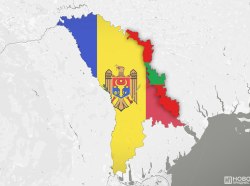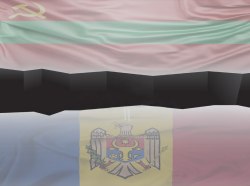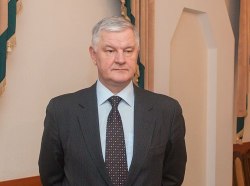Tiraspol, October 10. /Novosti Pridnestrovya/. In the afternoon, it became known that the Moldovan police began to liquidate opposition tents located on the roadway of Chisinau Avenue Stefan cel Mare, despite the exclusively peaceful nature of the protests.
What made the pro-Western and at the same time pro-Romanian authorities of Moldova abandon democracy?
It can be assumed that official Chisinau received sanctions for the use of force directly from the West and Romania. Washington, London, Brussels, and Bucharest are alarmed by the catastrophic decline in the authority and influence of the current government of the Republic of Moldova in the country, as well as the growing strength of opponents of the Moldovan leadership. This decline is easily explained: one of the protesters` demands is the payment of compensation to the people for gas that has risen in price tenfold for consumers. Meanwhile, it was the Moldovan authorities that failed the negotiations with Moscow, and after that more than once provocatively spoke out against Russia, which led several observers to think about the desire of the current leaders of the Republic of Moldova to refuse to purchase Russian gas in favor of more expensive gas from Europe.
Thus, gas tariffs, and other housing and communal services in Moldova will not only remain the same but will inevitably grow, since the West does not allow Chisinau to change the socio-economic policy, which is rigidly pursued in the spirit of the “recommendations” of the International Monetary Fund or the World Bank, which the President of Moldova, Maya Sandu, used to work in.
Consequently, there are no grounds for a dialogue between the Moldovan authorities and the opposition, which today unequivocally represents the majority of the population. What remains is either the resignation of the government or the suppression of the opposition. In what form and scale it is conceived, we do not yet know.
But there is no doubt that the West and Romania are against the resignation of the current leadership of Moldova, as they expect to turn Moldova into a bridgehead hostile to Russia. It is logical to assume that it was the Westerners who pushed the leaders of the country to the so-called road unblocking.
No less than leaders from the West and Romania, M. Sandu's team is worried by the fact that the capital's Mayor's office, headed by Ion Ceban, refused, despite the appeals of republican structures, to ban protests in the center of Chisinau. Frightened by the “loss” of the capital, the authorities decided to show their “muscles”. Moreover, the Mayor of Chisinau is threatened to be brought to justice.
To clarify: one of the pretexts for dispersing the “tent campers” on Stefan cel Mare Avenue was the usual phrase that the protesters “interfere” with traffic in the center of Chisinau, etc. This sounds unconvincing. Pro-Romanian nationalists had been blocking the center of Chisinau many times since 1989, but they did not dare to disperse them to the accompaniment of the crackling words of “democracy”. So, in 2002, the tents of the Popular Front of Moldova had been standing in the center of Chisinau for many weeks, and in 2009, with impunity, the nationalists defeated the center of the capital, seized and burned the presidential palace and the parliament building.
On the contrary, today's opposition protesters do not allow themselves any acts of violence.
So, we can state the refusal of the authorities to have a dialogue with the population of Moldova at this stage. What will happen next, we'll see.
The question arises: will the liquidation of the tent city on the central avenue be followed by suppression of protests in general? Indeed, over the past weekend, opponents of the pro-Western and pro-Romanian authorities gathered over 60 thousand people. Large-scale military actions against peaceful people are always fraught with unpredictable consequences.
It remains to be hoped for the common sense of the leadership of Moldova; for the fact that even under pressure from outside it will not completely abandon the observance of democratic norms in the internal life of the country.
The Pridnestrovian Moldavian Republic needs a stable and predictable neighbor nearby, observing the norms of relations between the government and the people generally accepted in the civilized world.
Political scientist Andrey Safonov








